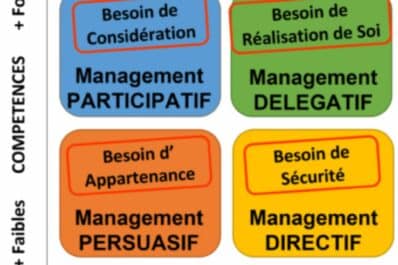
10 assets / qualities of an Interim Manager
It’s not new, a good manager is a manager who knows how to bring together essential qualities for the management of people, deadlines, budgets, complex problems… We have gathered here ten key points, common to all Interim Managers .
1) Inspiration: a key asset in solving complex problems
Whatever the sector of activity in which a manager intervenes, the management of complex problems will be part of his daily life. Thus, he must know how to manage the difficulty of each situation by taking distance in order to manage it as well as possible. In addition, inspiration is by definition an idea that drives creation and/or innovation…
2) Creativity: or how to find an original solution to a problem
In a situation of transformation , crisis or growth, one of the main tendencies of human beings is to lock themselves in what they know without leaving their comfort zone.
The main characteristic of the interim manager is to go beyond his knowledge in order to build solutions adapted to each type of situation.
A creative manager will evolve faster and constantly achieve new results. However, he should not make a clean sweep of these past actions because his experience in complex situations is proven and will therefore be useful for any type of mission.
3) Critical thinking: the art of mastering your environment
The keystone of any decision, whether strategic or operational, is maintaining a critical mind, a component of critical thinking.
This critical mind is built by thoroughly examining the ins and outs of any decision.
The idea is to constantly maintain a level of advanced analysis of one’s thought in order to make it evolve over time and not be out of step.
In summary, a manager must constantly stay informed of the latest innovations in his sector of activity while maintaining a high level of critical analysis of them.
4) The meaning of negotiation: becoming an expert in sharing points of view
Real skill sought in a Transition Manager , the sense of negotiation is an art that has nothing to do with a long calm river.
Indeed, during their missions, managers are confronted with sometimes opposing points of view between the procedure to follow and the objectives to be achieved. One of the success factors of the negotiation will be to succeed in making all the parties emerge victorious. Negotiation is therefore seen as a win-win process.
5) Collaboration: connecting distinct visions
We know today that individuals are not programmed to work in teams. Based on this observation, the task of a manager does not seem to be the simplest.
However, it is not impossible to make a team of collaborators work without them going to war.
For this, several success factors are necessary for the success of the mission.
It is therefore necessary to have a common objective for this, and therefore to involve these employees fairly in the project by taking the risks together but also by sharing the possible success of the project.
In addition, care must also be taken not to lose anyone on the way in order to ensure group unity until the finalization of the project.
6) “People management”: managing employees effectively
Good management of its personnel makes it possible to achieve higher levels of productivity than normal.
Several classic functions exist in the management of its employees: planning, organization, direction and supervision.
On the other hand, other functions have been added to the classic functions such as generating desire, supporting employees in their missions or improving the continuous communication process throughout the project. It is therefore mainly a matter of taking into account everyone’s priorities in order to direct them towards a common goal.
7) Mental flexibility: correlating different minds towards a common goal
One of the most common definitions of intelligence is the ability to adapt flexibly to one’s environment. Each person has their own way of seeing things which is not a universal reality for everyone. It will therefore be a question for the manager of succeeding in bringing together all these ways of thinking through a common final objective .
8) Service excellence: more than a matter of perfection
Here again, the search for excellence is essential for a manager . The primary goal must be to provide perfect service, but which must correspond in all respects to the expectations of the customer. According to Rust and Oliver (2000), “ service excellence must give rise to a positive emotion of the customer following a positive and unexpected transgression of his expectations ”. In summary, the idea is no longer just to achieve the desired objectives, now it is also necessary as far as possible to understand and achieve the implicit objectives of the company.
9) Emotional intelligence: self-control to better control the situation
The idea here is to acquire the ability to recognize, understand and control one’s own emotions in order to keep continuous control of one’s emotions in order to better reuse them. This implies knowing one’s environment but also and above all dealing with the emotions of the people around us to facilitate any cognitive process .
10) Decision-making: a continuous process, in interaction with its environment
Deciding for a group of people is a daily act throughout the mission of the Transition Manager. Indeed, he must always keep in mind the major challenges of his mission in order to validate any decision taken, while accepting the part of uncertainty and unknown that accompanies it. The Transition Manager must be rational and calm in the face of any unknown that would come in opposition to his decision.
































